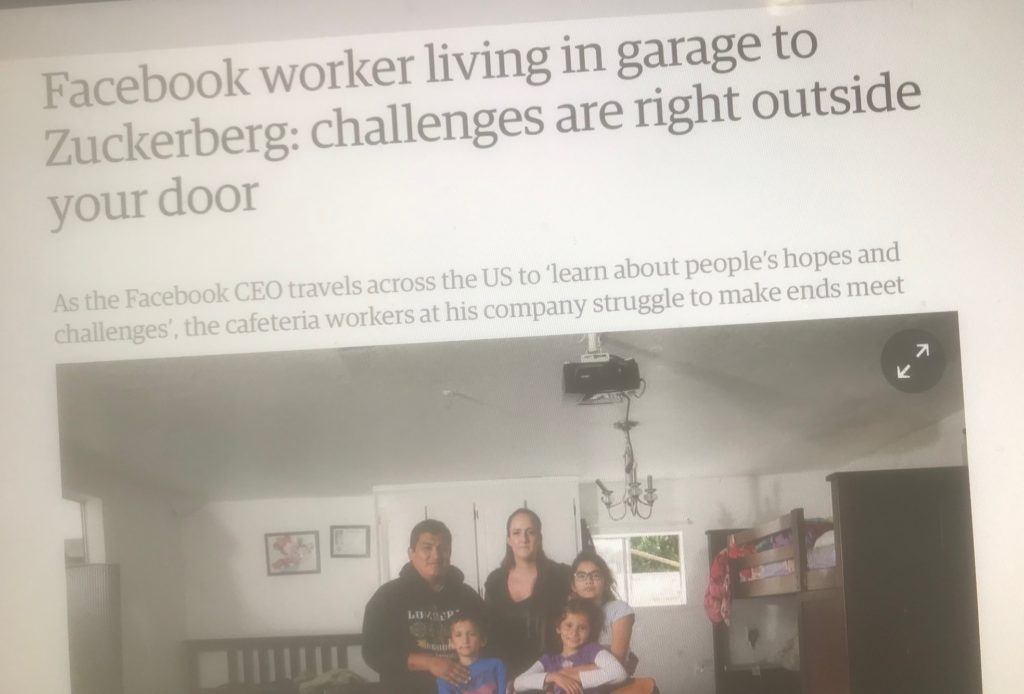Stephen Collins
This is the eighth of ten themes in Nigel Cameron’s open letter to Mark Zuckerberg, exploring obstacles to him seeking the US presidency. Click here for whole series.
You don’t need me to tell you that you are rich. Or that all around you there are people who are poor.
California is the world’s sixth largest economy, but it’s also the state with the highest levels of poverty in the US. What’s more, there is a special concentration of poverty and homelessness around Silicon Valley1.
Then there’s the family who work for Facebook who are living in a garage2.
Stories of the Valley’s wealth, and the homelessness and poverty of so many people living nearby, keep hitting the headlines. Of course, it isn’t one problem, it’s several. East Palo Alto (roughly three miles from your house?) has historically been a poor (and violent) community. Things there are actually, slowly, improving. San Francisco has a long-term housing shortage (though it has been driven up dramatically by the high salaries paid by Valley companies). The mild climate attracts homeless people who sleep rough.

Poverty in a land of plenty is nothing new. But extreme poverty cheek-by-jowl with the enormous wealth being generated by the Valley is a growing national embarrassment. What’s more, all that innovation rhetoric is at stake. Can’t fabulously wealthy super-smart people solve a problem in their own backyard? Can’t you? And, Mark, don’t underestimate the importance of this. You’ll know that many fear the future is set to be characterised by inequality on a scale we haven’t yet experienced. To simplify: people fear the owners of robot technologies getting rich beyond imagination and the masses whose jobs are taken by those robot technologies sinking more than swimming. How you deal with your own backyard gives something of a clue, in many minds, to how you’ll behave in the future.
Here are some quick ideas:
- Your charity effort is focused on other worthy things, so how about launching another one to fight poverty in the Valley? Maybe it could partner with Facebook, in a vast effort in corporate social responsibility. Either or both?
- You could twist arms as hard as you need to so every other Valley leader is strongly encouraged to join in. And they could start by ending efforts to minimise their property taxes.
- You could recruit a brains-trust of the smartest thinkers on poverty-solving, and give them funding to start up innovative projects – or copy tried-and-tested efforts from elsewhere.
- You could promise that no Facebook employee, from janitors and food service people up, will lack for a home in reasonable commuting distance – and then come up with a way to make that work that does not further distort the housing market.
Helpful?
Part 9: Slow down. You don’t need to be President for a decade or two

 Main Edition
Main Edition US
US FR
FR






Join the discussion
Join like minded readers that support our journalism by becoming a paid subscriber
To join the discussion in the comments, become a paid subscriber.
Join like minded readers that support our journalism, read unlimited articles and enjoy other subscriber-only benefits.
Subscribe